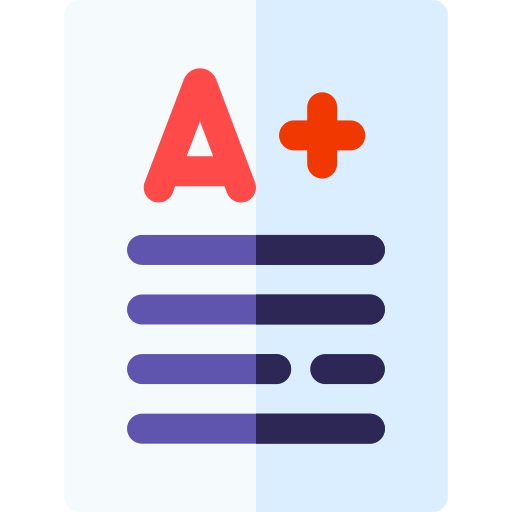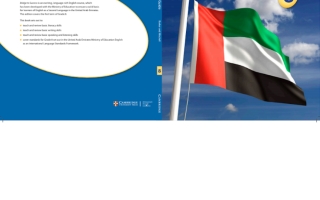دليل المعلم لغة انجليزية للصف الثامن الفصل الثاني
Bridge to Success
Teacher’s Guide
Contents
Scope and Sequence
Introduction
How to use Bridge to Success
Teaching Strategies
Unit 6 Use of English
Unit 7 Globally connected
Unit 8 E-communication
Unit 9 Rivers and coasts
Audioscript
PCM
Unit 6
Using English
Pages 93–110
Reading/Topic
The theatre Performing a play
The story of Aladdin Drama in the UAE
Monodrama
Reading a dialogue for information
Read about William Shakespeare
:Listening
Listening to a description of a theatre visit
Predicting what will happen next Taking notes
Focusing on specifc information
Listening for specifc information
:Speaking
Being in a play
Discussing a story
Discuss problems staging a play
Prepare and present amonodrama
Discuss drama as an activity
Use of English
like and as to say that things are similar
(Reported speech – commands (ask and tell
Reported
questions
Vocabulary
Words about the theatre and drama
Writing
Writing sentences using like Write and perform a play based on the story of Aladdin
Write a summary of a text
Write a blog about how useful drama is
Reporting
sentences
Review Project
Review of Unit 6
Literacy project: Write a short play
Unit 7
Globally connected
Pages 111–127
Languages you speak
The world of social media
The advantages of knowing languages
?Is it good to learn a foreign language
Pros and cons of English as a global language
Reading about Arabish
Staying safe online Mobile apps
:Listening
Benefts of learning languages
Listening for specifc information
Listen to interviews
Internet safety
:Speaking
Languages you speak
Discuss opinions about why learning languages is good
Pros and cons of English as a global language
Discuss if the world needs a global language
Using Arabish
Why people use social media Conduct a survey
:Determiners
/neither, each /every, all, both
:conjunctions
although, while, whereas
Languages you speak Online
language
Social media
Write sentences using although Join sentences using whereas/ while
Write sentences /using neither, each
every, all or both
Write a text using Arabish Write survey
questions
Correct statements about social media
Review Project
Review of Unit 7
Make a poster about social media use
Unit 8
E-communication
Pages 128–145
Using electronic communication Virtual reality
The School of the Air Schools of the future
Advantages and disadvantages of
Email and mobile phone etiquette
:Listening
Talking about birthday presents
Emailing and texting
:Speaking
(Discussing technology (VR, smartphones, gadgets
Schools in the future
Discussing BMI technology
to, in order to, so that, so as to express purpose will future, passive form wish (that), if only+ past perfect should have/shouldn’t have
Technology
Regrets
Email etiquette
Write election promises
Writing about regrets
Writing emails
Review
Project
Review Unit 8
Write a guide to mobile phone etiquette
Unit 9
Rivers and coasts
Pages 146–162
The Nile and ancient
Egyptians The Amazon river and rainforest
Robinson Crusoe island Gardens
Fishing and the sea
Sea-related jobs
Coral reefs Holidays
:Listening
The ancient Egyptians
Listen to an interview Holidays
:Speaking
Past tenses, then, after that, suddenly, in the end Give a presentation
Pros and cons of certain jobs
Presentation about coral reefs
..Phrases: Sure, why not?, Why don’t we ...?, Shall I ...?, I’m not sure ...,
?........ How about
Holidays
Present and past tenses
Non-defning and
defning relative clauses
Zero and frst conditionals
Second conditional
History
Marine biology
Tourism
The environment
The benefts of the Nile
Why tropical rainforests are important
Islamic gardens
Review
Project
Review Unit 9
Presentation about the natural world
Welcome to Bridge to Success Grade 8
Bridge to Success is a twelve-grade course for learners of English as a Second Language (ESL). The twelve grades range from the beginning of Cycle I to the end of Cycle 3. The course has designed to fulfil the requirements of the English as an International Language (Ell.) National Learning Standards Unified Framework
Bridge to Success Grade 8 consists of twelve thematic units of study, which include a range of activities, text tFS and objectives, split over three terms The materials reflect the following principles
An Emirati focus with an international perspective Specifically developed for young learners throughout the United Arab Emirates the themes, situations and literature covered by Bridge to Success strive to reflect the Emirati context and encourage learners' curiosity alN)ut the wider world. This fosters and interest in other cultures and leads to awareness of global citizenship
An enquiry- based, language -rich approach to learning Bridge to Success engages children as active, creative learnem As learners participate in a wide variety of curriculum- based activities, they simultaneously acquire content knowledge, develop critical thinking skills and practise English language and literacy. The materials incorm»rate a •learning to learn' approach, helping children acquire skills and strategies that will help them approach new learning situations with confidence English for educational success. To meet the challenges of the future, children need to develop facility with conversational and academic English. From the earliest stage, Bridge to Success addresses both these competencies Bridge to Success authentic listening and reading texts, writing tasks and end
of- unit projects similar to those learners might encounter in English- medium and international schools Emphasis is placed on developing the listening, svRaking, reading and writing skills learners will need to be successful in using authentic English. language classroom materials
Rich vocabulary development. Building a large and robust vocabulary is a cornerstone to success in both conversational and academic English. Bridge to Success exposes learners to a wide range of vocabulary. Many opportunities for revising these words and using them in personalised, meaningful
ways are woven into the activities and lesson plans
Individualised learning. We approach learning in an individual way by both acknowledging the individual. nature of the knowledge and background of each. child, and encouraging their specific input. We also provide for differentiated learning in the classroom by offering a range of activities of varying difficulty and guidance for tailoring activities to the needs of different learners. Detailed support for this is provided in the lesson plans in this book
Integrated assessment. Throughout the course, teachers informally assess their learners' understanding of language and concepts The Teacher's Guide provides suggestions for extending or re-teaching language skills based on learners' demonstrated proficiency. An end- of -unit Review in the Coursebook provides a simple- to- use evaluation measure: a quick progress check on learners' understanding of key ESL and early literacy skills
At the end of each unit, learners apply the skills and knowledge they have acquired as they work in groups to create and present a project. This provides teachers with an excellent performance assessment opportunity
We hope that you and your learners will enjoy using these materials as much as we enjoyed developing them for you




